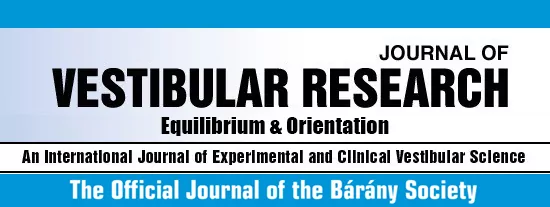VeDA receives comments from members who are frustrated with their perception of how little is known about vestibular disorders. They want to help advance scientific knowledge so that new treatment options become available to them, and so that other people don’t experience the same difficulties they encountered during the process of seeking informed medical help. They ask: “Why does vestibular research take so long?” And: “If I help the scientists by becoming a research subject now, would the results speed up the development of new treatments for me?”
Why Does It Take So Long To Develop New Treatments?
 Before any new diagnostic method or treatment can be used on a patient, it must be analyzed to determine how effective and safe it is. The scientific method is used to perform this analysis so that accurate and unbiased information is produced.
Before any new diagnostic method or treatment can be used on a patient, it must be analyzed to determine how effective and safe it is. The scientific method is used to perform this analysis so that accurate and unbiased information is produced.
In preparation, scientists often wade through lengthy application processes to obtain funding for the vestibular research project. They also devote large amounts of time to reading about related vestibular research to ensure that they add to existing knowledge rather than duplicate what is already known. Steps of a scientific experiment can include numerous elements. For instance, constructing the tests involves identifying what to test, how, when, where, and by whom, as well as the number of research subjects required to provide enough information (data) to validate the study. Researchers must decide how to analyze the data, build the testing device (or equipment), find the research subjects to participate in the test, collect data (recording measurements produced during the test), compile (add up or convert) and analyze the data, and then draw conclusions from the results of the data analysis. After that, the results and conclusions need to be written up, reviewed and approved by other scientists, and, finally, presented to the medical community. The results of experiments frequently lead to additional questions that require clarification. Multiple, separate research projects are often involved in the development of a single diagnostic or treatment method.
The Scientific Method
- Observe/describe a particular phenomenon.
- Formulate a specific question or hypothesis (hypothetical explanation) about the phenomenon.
- Predict what will happen if that hypothesis is tested.
- Use experimental tests of those predictions to confirm or rule out the hypothesis.
What Kind of Personal Benefits & Consequences Can I Expect As A Research Subject?
Being a vestibular research subject can be a rewarding experience if expectations about the experience are well defined. Participation can improve a person’s feeling of self-worth because it contributes to the advancement of medical knowledge that will help people in the future. But it is also important to acknowledge that, for a research subject with a vestibular disorder, the physical consequences of participating in the experiment may include a temporary increase in symptoms.
Also, a frequent misconception is that vestibular research subjects will receive immediate physical benefit or better health care. This is not usually the case. The process is not oriented to providing individually tailored medical care for a specific person. Rigorous medical research is designed to answer very specific questions about a group of people. In fact, many research projects are carried out by non-physician scientists who aren’t licensed to provide health care or give advice.
What Specifics Should I Know About Becoming A Research Subject?
Prospective vestibular research subjects should be presented with a consent form that identifies all of the potential risks and benefits of participation. No one should sign a consent form before reading and thoroughly understanding it. This might involve acquiring a copy ahead of time in order to study it and seek help in understanding it, if needed.
The consent form should describe what the test involves, how much time will be required, who will lead the research, whether payment will be given, and who pays if an injury occurs. Researchers work diligently to keep their experiments safe, but there is always some risk of injury when dealing with human beings. If the research facility does not pay for injuries, a potential research subject should, prior to signing the consent form, confirm that his or her own medical insurance company will cover any injuries that might occur during, or as a result of, participation as a research subject.
Many major research projects do not offer subjects financial compensation for their time and efforts. Others offer a small participation fee. But research subjects should not be expected to pay for any part of the research.
If asked, the researchers should be able to provide information about the validity of the project’s administration (e.g., if the research has been approved by an institutional review board and what organization is funding this research) and about the research scientists’ background (e.g., their special research training, other studies they’ve done, if they’ve received other competitive research grants, and if they’ve published results from other projects). They should also be able to tell participants if other researchers are studying the same issues and if the results will be presented at a research meeting such as those sponsored by the Association for Research in Otolaryngology.
For more information, see VeDA’s webpage of ongoing clinical trials.
Scientists who would like to submit a posting to recruit participants for their research study may use our clinical trial recruitment form.
Read summaries of current research published in the Journal of Vestibular Medicine and other reputable medical journals here.

 Before any new diagnostic method or treatment can be used on a patient, it must be analyzed to determine how effective and safe it is. The scientific method is used to perform this analysis so that accurate and unbiased information is produced.
Before any new diagnostic method or treatment can be used on a patient, it must be analyzed to determine how effective and safe it is. The scientific method is used to perform this analysis so that accurate and unbiased information is produced.

